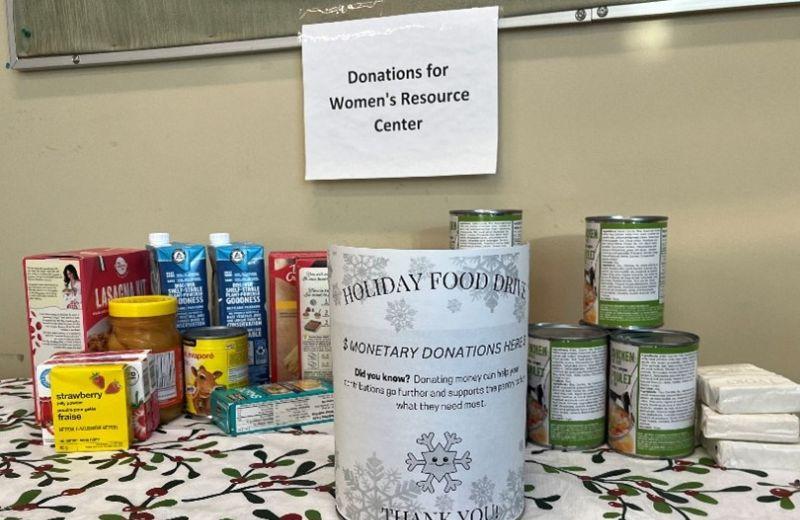For some, the holiday season is a time to think about food charity and what it means for our communities. Familiar initiatives, such as the CBC BC Food Bank Day and other food drives encourage us to give or share, if we can.

Unfortunately, food bank use has been increasing at alarming rates in the past few years. The good news is, many people and businesses are wondering how they can help. If you have the means to donate non-perishable food items, the BC Food Bank’s top ten most-needed options include foods such as fruits and vegetables (canned or dried), protein foods, and grains. Your local food bank might have different needs - you can always call and ask what their priorities currently are.
Did you know that donating money is one of the best ways to support food banks?
According to many food bank staff, donating money to your local food bank is the most effective way to be sure that nutritious foods are available for families. Here’s why:
- Both perishable and non-perishable items can be purchased by staff, which helps to ensure that food bank users have consistent access to a variety of nutritious foods.
- Food bank staff know exactly which foods are in need.
- Food banks are costly to run, so monetary donations also help with operational costs (e.g., building costs such as rent, hydro, and heat).
- Food banks purchase in bulk and can buy three to four times more food with each dollar.

“Money helps us to buy foods when needed, so that we can have a good supply of food year-round,” said a Salvation Army staff member. “
How to donate money to your local food bank and other FAQs
- Food Bank BC has an online donation system.
- Your donations are eligible for a tax receipt.
- Your online donations help food banks across BC, including those in rural and Northern communities.
- If you know your local food bank, or another food program, ask how you can donate. Perhaps you can send an email money transfer, or you can drop by with cash or a gift card.
- Visit Food Bank BC to find a food bank near you.
Statistics on household food insecurity
Household food insecurity is when individuals or families can’t access the food they need because they don’t have enough money.
Northern BC has the highest cost of food in the province, as well as the highest rates of food insecurity:
- Based on data from 2018, about 17% (1 in 6) of households in Northern BC experience some level of food insecurity. This number is probably higher now because of the effects of the COVID-19 pandemic and the cost-of-living crisis.
- Those most affected are single-parent households with children, those who rely on social assistance, and many people in the work force.

Research shows that household food insecurity is mainly an income-based issue that is tightly linked to poverty. It affects some households more than others, including those who experience racism and other barriers to accessing meaningful employment, adequate housing, or social supports.
Indigenous households also experience higher rates of household food insecurity due to the longstanding and ongoing effects of colonial practices. More than monetary or food donations, food security requires supporting food justice and Indigenous food sovereignty.
How can food banks help?
While food banks are not a solution to these complex issues at the root of household food insecurity, they can help provide short-term, immediate access to food.
This holiday season, will you support a local food bank or other food program? If yes, consider donating money. If you're hosting a food drive in your church, school, workplace or community group, allow and encourage donations of cash or gift cards. This will help staff and volunteers buy high-quality, nutritious foods to support families during the holidays and beyond.
Note: This story was originally written in November 2017 and has been updated to include more recent data and context














Comments